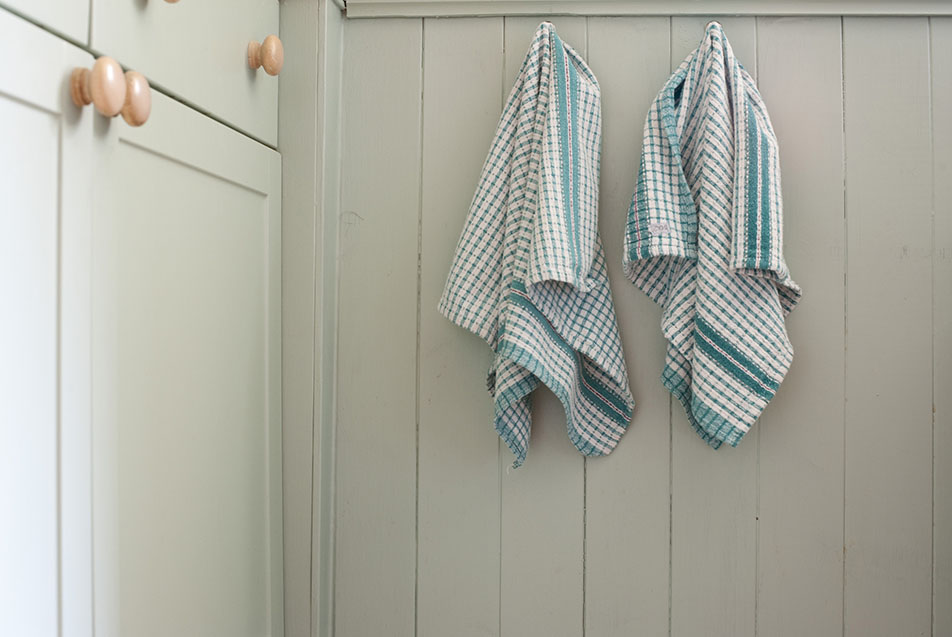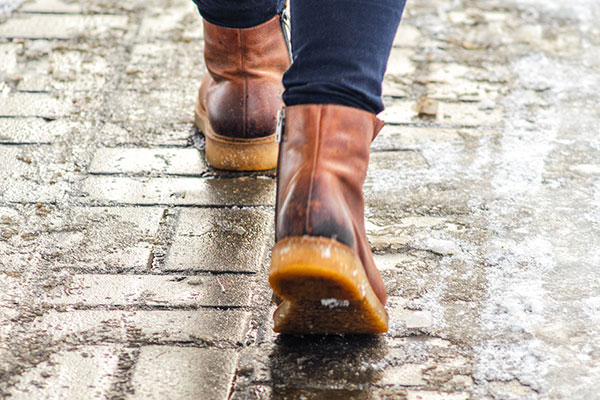
Common kitchen accessories, like sponges and dish rags, are certainly necessary, but are they a risk as well? Amie Dent, RDN, CD, offers some guidelines for the proper cleaning methods and storage of your kitchen towels, so you can keep on cooking and keep your household healthy.
The risks
Kitchen towels are a breeding ground for germs that could potentially make you and your family sick. The kitchen itself can harbor more bacteria than any other room in your home. Kitchen towels, like kitchen sponges, can cause a dreaded cold or flu to spread throughout the household like wildfire. Your kitchen towels can also cause food poisoning and other foodborne illnesses.
Washing instructions
To help prevent the spread of germs, you should change out your kitchen towels at least once a week, but preferably every few days. For best results, if possible, use your towels one time and then throw them into the washer and get a new one.
Towels should be cleaned in the washing machine, using hot water, and then dried on high heat. Make sure the towels are completely dry before using them. Most bacteria thrive in moisture.
Preferred placement
The best place to hang your kitchen towel is on a hook or handle where it can properly dry between uses. Try to keep your towels away from humid areas, like the kitchen sink, as a moist towel could promote the growth of potential pathogens responsible for food poisoning. Clean, unused, kitchen towels are best stored in a drawer or dry sealed container to prevent cross-contamination in the kitchen.
Material matters
When purchasing kitchen towels, you should look for fast drying fabrics, as there are higher instances of bacterial growth on warm, humid towels as opposed to dry towels. Antimicrobial microfiber towels are a great option. Not only do microfiber towels dry faster than cotton towels, the split fibers of the microfiber cloths are able to pick up and hold dirt. Traditional fibers tend to push dirt and moisture around a surface.
Single use towels, like paper towels, are a good option to use in the kitchen when trying to prevent foodborne illnesses or cross-contamination. However, using paper towels can have a negative impact on the environment. To have a more sustainable kitchen, it is recommended to stick with a reusable kitchen towel rather than paper towels and follow correct cleaning and storing precautions to prevent illness or the spread of germs.
Big takeaways
To prevent the spread of bacteria and foodborne illness:
- If possible, have different towels for different uses in the kitchen (i.e. hand drying towel, wiping utensils towel, wiping surfaces towel, etc.).
- Wash all of your towels in hot water at least once a week.
- Choose fast-drying towels and store away from humid or moist conditions.




